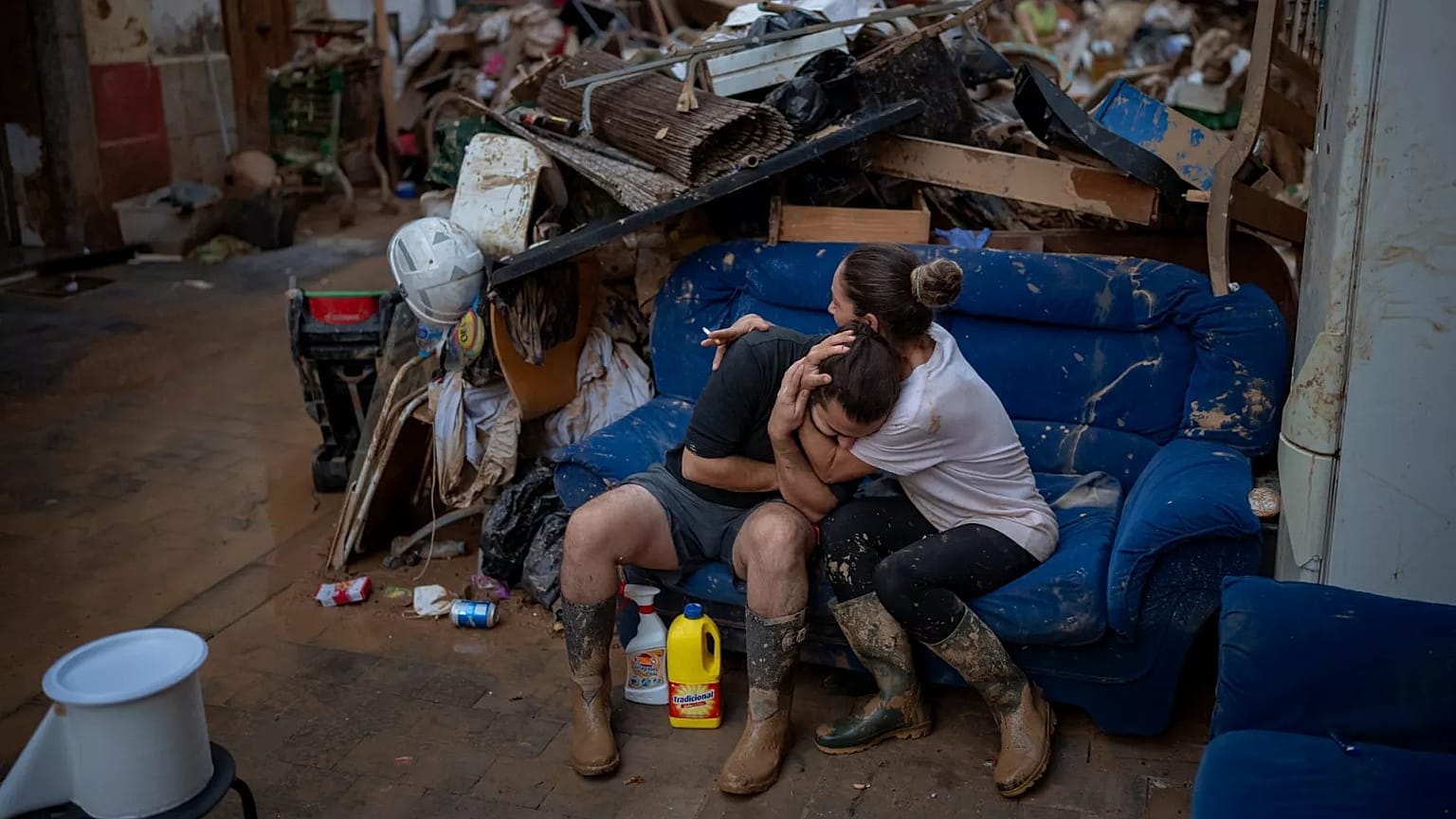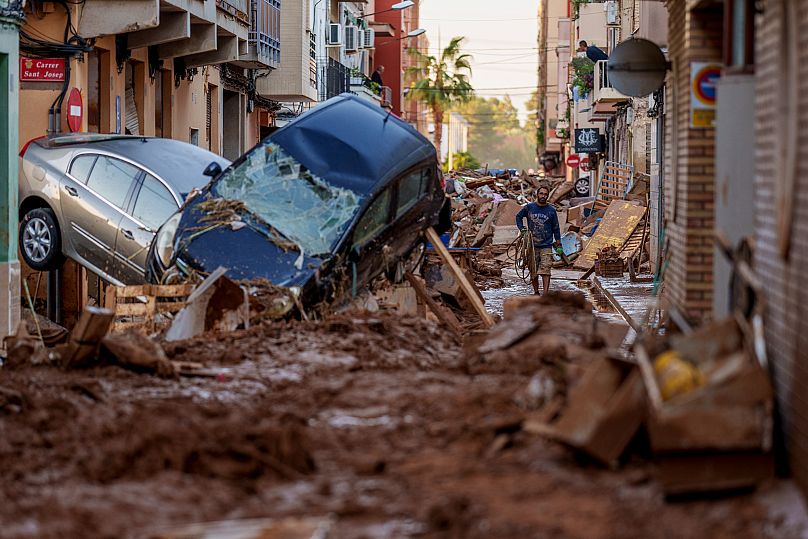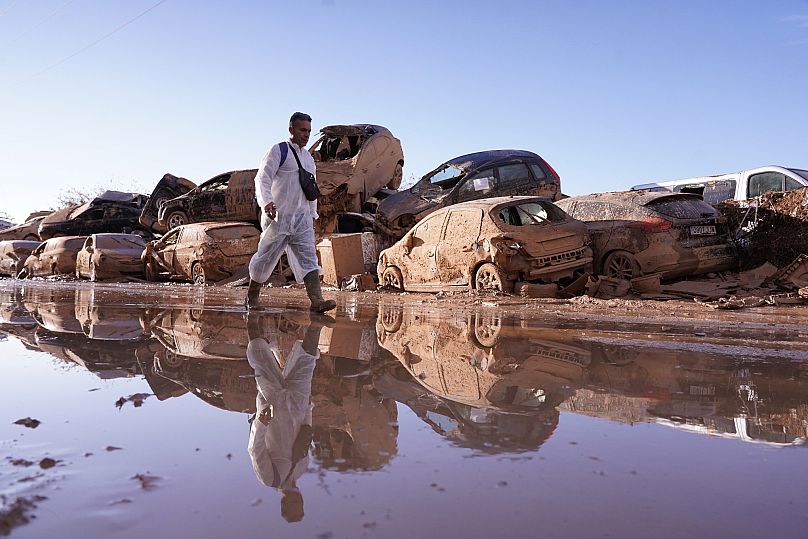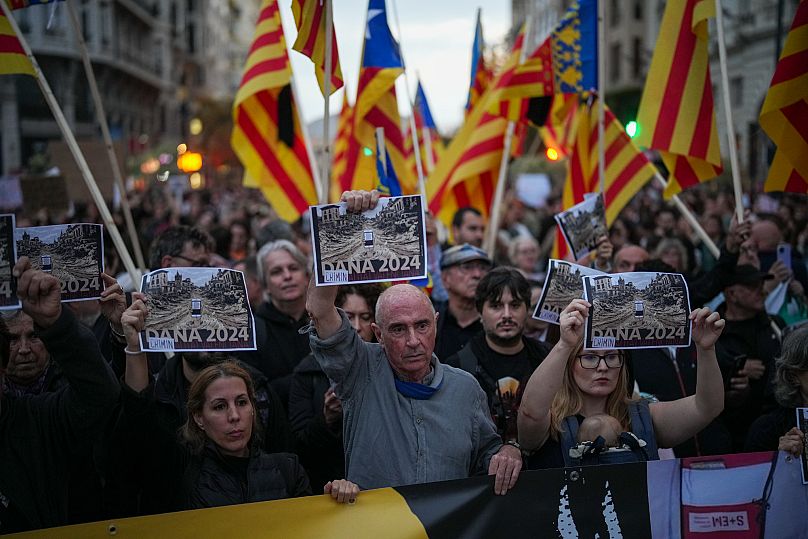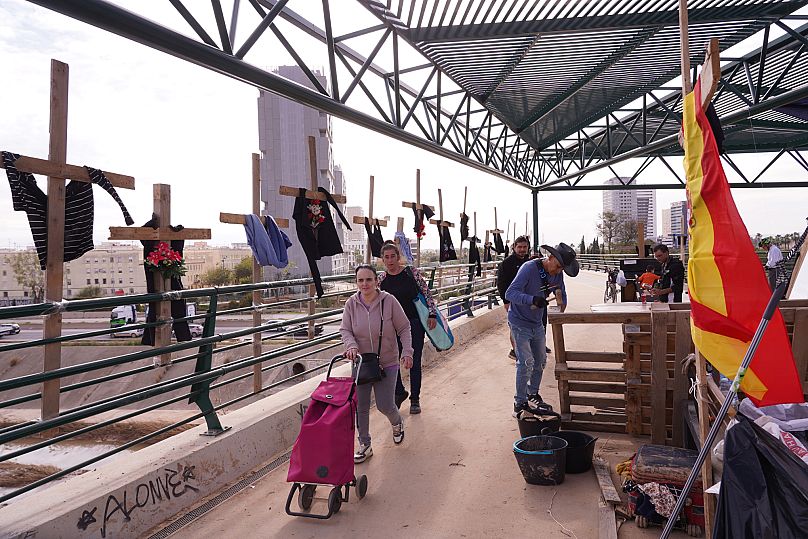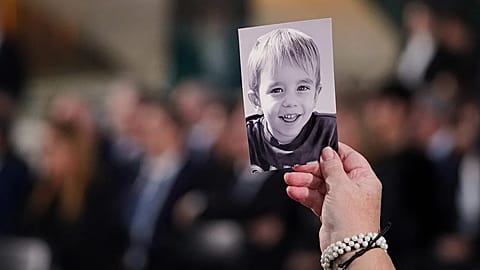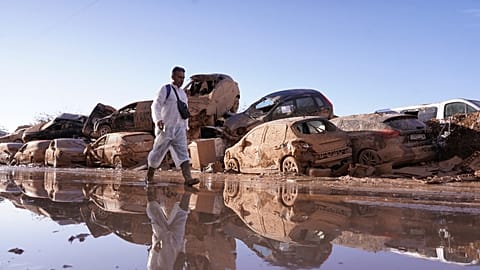Toñi García lost her husband and only daughter. She is demanding the truth and justice: "They didn't die because of the rain, they died because of negligent management," she told Euronews.
On 29 October 2024, a Isolated High Level Depression system, known as a DANA, hit the Levante peninsular with devastating force. In just a few hours, torrents of water and mud flooded entire neighbourhoods in the provinces of Valencia, Castellón, Alicante, Murcia and part of eastern Andalusia.
229 people lost their lives, according to official figures consolidated months later, making the episode the deadliest weather-related catastrophe in Spain in more than half a century.
In the Valencian municipality of Benetússer, the water engulfed the streets in minutes.
Toñi García, a civil servant with the Valencian government, lost her husband and her only daughter, Sara, that night.
"We have not been able to mourn. There has been no forgiveness, no truth. Only when justice arrives will we be able to rest," she told Euronews through tears.
The hell of 29 October
On 29 October there was still no rain in Benetússer.
"The sky was grey, but no water was falling. Nobody warned us of anything," recalls Toñi. At 6:30 pm, her daughter looked out on the balcony, worried: "Mum, can Benetússer be flooded?"
"I told her no, that if anything happened we would be alerted," she replied. But the alert did not come.
At 7:15 pm, a deluge of brown water burst into the street.
"We thought it was a burst pipe. My husband went down to get the car out of the garage. My daughter followed him. I never saw them again. The water rose more than two metres in a matter of minutes. We heard screaming, banging, cars being swept away, walls falling. It was hell. We thought the building was coming down."
Three days later, divers from the Military Emergency Unit (UME) found her husband and daughter together.
"They couldn't get out of the garage. They were hugging each other," says Toñi.
The 29 October weather even affected the metropolitan area of Valencia and several municipalities of Horta Sud, but also left victims in Castellón, Alicante, Murcia, Almería and inland areas of Cuenca and Teruel.
More than 40,000 people were affected, hundreds of homes were left uninhabitable and thousands of vehicles were swept away by the floods.
Experts agree that the phenomenon was aggravated by a lack of institutional foresight and coordination. In many localities, emergency warnings were issued more than an hour late, when the floods were already uncontrollable.
"They died because of the management"
Toñi García is clear: "It wasn't raining here. They died because of irresponsible management. They ignored the scientific warnings because it was a bank holiday and they didn't want to alarm tourism," she says.
The survivors point the finger directly at the Valenicia municipal authorities, governed by the People's Party and president Carlos Mazón, for negligence in emergency management.
"The councillor for Justice and Emergencies acknowledged before the judge that she did not know the law on Emergencies: How can someone who does not know the protocol be responsible for saving lives?"
The associations of those affected complain that there has been no official recognition of the dead or acts of symbolic reparation.
"They have given aid for houses and cars, but not for people. If they did, they would assume their guilt", she laments.
Unfinished mourning
12 months after the disaster, Toñi still lives in the same flat. "It was our home. I feel close to them here," she explains.
But every weather alert reopens old wounds.
"When we hear the rain on the roof, we are nervous. We're unsettled and frustrated. And that's the fear that has stayed with us as a society at large."
According to a new report, more than 30% of children affected by the DANA are still feeling the rains and storms.
In the days following the disaster, psychological help was almost non-existent. "I only had ten minutes with a psychologist when they found my husband's body," recalls Toñi. Every drop is a shot to the soul for the victims who have not yet been able to finish their mourning.
"There were so many dead that I couldn't cope. For months, the victims had to resort to private care to cope with the trauma. We didn't receive continuous psychiatric or psychological care until January. The lack of resources was total", she says.
It was not until the intervention of the central government that dedicated mental health units were created for those affected by the DANA, managed in coordination with the Official College of Psychologists.
"Now we are well cared for, but in October, November and December we were completely alone", she says.
On the one year anniversary, the survivors will be able to attend a state funeral. But they are asking for more, they are demanding that measures be put in place so that something like this does not happen again. They want an effective prevention plan and a public apology from the regional government.
"We are not asking for money. We are asking for dignity. We want truth, forgiveness and justice."
The victims' associations have succeeded in getting the judiciary to investigate several local officials for alleged negligence in the management of the emergency. The legal proceedings, still in the investigation phase, are advancing with the testimony of dozens of victims who denounce delays in the alerts, lack of coordination between administrations and the absence of preventive evacuations.
The absence of forgiveness
In their struggle for recognition, Toñi and other relatives of the victims travelled to Brussels, where they were received by several Commissioners from the European Commission, including the President Ursula von der Leyen.
"They listened to us," she says. "They couldn't believe that a person with 229 deaths on her shoulders was still in office," Toñi told Euronews.
The victims found in the European institutions a sensitivity that, they say, was lacking in their own regional government.
"In Brussels they treated us with respect, took an interest in our situation and assured us that the European money destined for reconstruction will be audited to guarantee transparency."
For Toñi, this meeting marked a before and after: "The recognition that we didn't get in Spain we found there."
However, Toñi highlights the attention received both from the government delegate in Valencia, Pilar Bernabé, and from the central government, especially from the then Secretary of State for the Environment, Sara Aagesen, the current Minister for Ecological Transition, who travelled to the Valencian Community after the catastrophe.
"She presented us with a plan and explained what it would consist of before making it public," recalls Toñi.
"He had the courtesy to meet with us, listen to us and involve us in the reconstruction measures. We felt informed and taken into account, something the Generalitat has never done."
Meanwhile, Mazón, the current president of the Generalitat, has neither apologised nor met with the victims, something that Toñi describes as "shameful and inhumane".
"He knows that the people don't want him. He is carrying 229 dead on his back. He can't look people in the face," she says forcefully.
Lessons still unlearned
One year later, fear is still there in the Valencian Community. The DANA of September 2025 once again put protocols to the test. This time, authorities were taking no risks and issued alerts in advance, classes were suspended and mobility was reduced.
"And not a single person died. This shows that when you act responsibly, lives are saved," stresses Toñi.
For her, the memory of her daughter and husband has become a mission: to prevent a tragedy like that of 29 October from happening again.
"We don't want revenge. We want memory and truth. Only when there is justice will we be able to say goodbye to them as they deserve."















